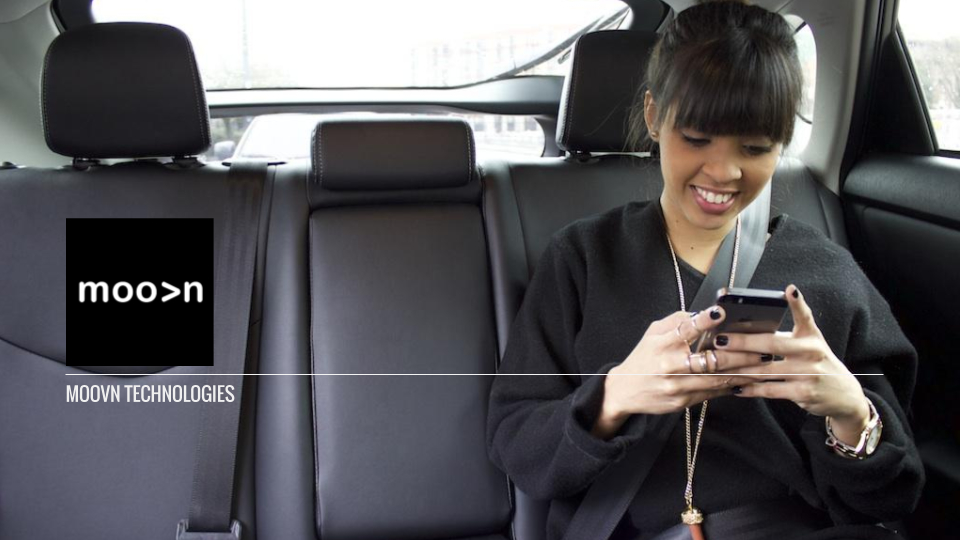Before #DeleteUber, Seattle-born ridesharing company Moovn was charting a slow and steady course of expansion. But now, well, “now we have to build faster,” CEO Godwin Gabriel told Technical.ly.
“We found ourselves in a very unique position” with the #DeleteUber movement, Gabriel said. In a market dominated by big, powerful names with deep pockets, Moovn suddenly saw an opening for its service and a “focus on the partners” ethos.
Moovn first launched in Seattle in 2015. Gabriel, who comes from a non-tech background, taught himself how to code in order to create the app’s MVP — it took him about nine months. In a conversation with Technical.ly, Gabriel consistently referenced Moovn’s “humble beginnings” — a kind of David in a market of Goliaths.
So why get into the ridesharing business at all? According to Gabriel, he noticed two openings that led him to believe it is possible to take on the likes of Uber and Lyft.
First, in his travels, Gabriel noticed that ridesharing apps just don’t exist in a lot of places in the world. For example, Africa. And here at home, though there is no shortage of transportation options in the major cities in the U.S., Gabriel began to hear complaints from both riders and drivers about the way the major ridesharing companies operate.
Of course, #DeleteUber only augmented the latter.

Moovn’s various apps. (Courtesy photo)
So how is Moovn different? Gabriel likes to highlight the company’s focus on its partners. From his perspective Uber is “disenfranchising” its drivers — mainly by underpaying them for long hours of work. Moovn commits to giving drivers 85 percent of the fare of a ride, Gabriel said. The app also allows tipping (which is something Uber does not, while Lyft does). Just like Uber and Lyft, however, Moovn’s drivers (though they are all professionals at this time) are contractors.
From a rider perspective, too, Moovn steps in to fix some (perceived) Uber missteps. In addition to luring users with a promise of treating drivers well, Moovn doesn’t do surge pricing.
Moovn is available in cities like New York, Chicago, San Francisco and D.C., as well as Dubai, Johannesburg and Nairobi. In the latter places, Gabriel says, Moovn “localizes” the product to a foreign market by allowing ridesharing via vehicles like motorcycles and tuk-tuks as well as cars.
In D.C., Moovn has launched with its “business partners” first — partners like convention centers and hotels. These partners give Moovn a density of customers in a new city without having to do a major marketing campaign. “We knew that the only way to get there was to start soft,” Gabriel said. Now, he said, the company has teams on the ground in the District working on growing further into the consumer market, though for the time being Moovn is only available here via business partners.
We’re always quick to point out that getting into the ridesharing business is tough. It’s not that the market is oversaturated, necessarily, but rather that it is dominated by major players with powerful name recognition. Still, maybe Gabriel is right. Maybe #DeleteUber is just the beginning of a larger move away from this particular giant. And maybe Lyft, for all its trying, has not managed to fill the “friendly option” spot.
And just maybe, when customers are looking for more ridesharing options in D.C., they’ll look for Moovn.
Join the conversation!
Find news, events, jobs and people who share your interests on Technical.ly's open community Slack

DC daily roundup: Tyto Athene's cross-DMV deal; Spirit owner sells to Accenture; meet 2GI's new cohort

DC daily roundup: $10M to streamline govt. contracting; life sciences might dethrone software; Acadia's new $50M

DC daily roundup: the DMV's VC cooldown, SmartSigns for safer driving; Rep. Schiff's AI copyright bill

